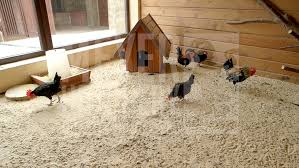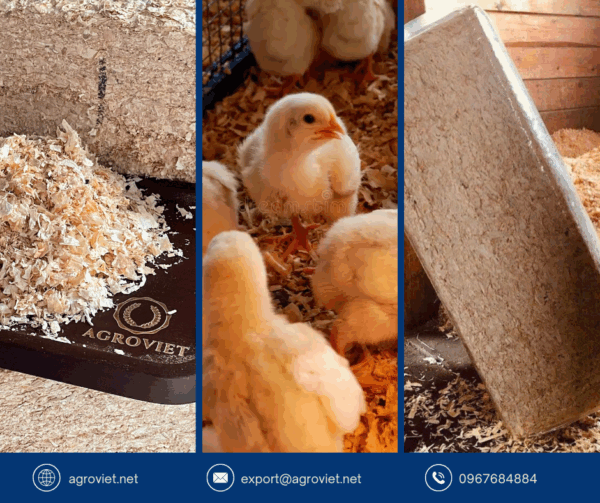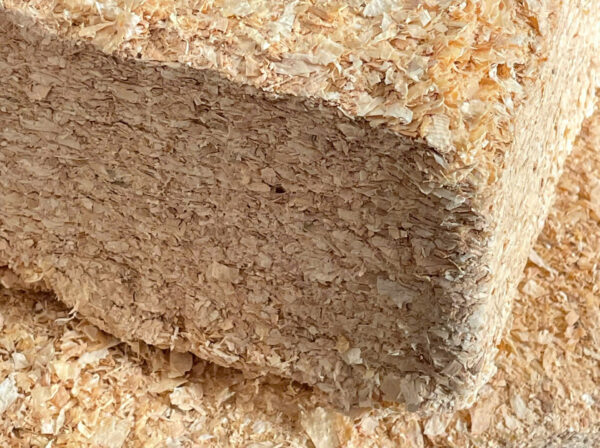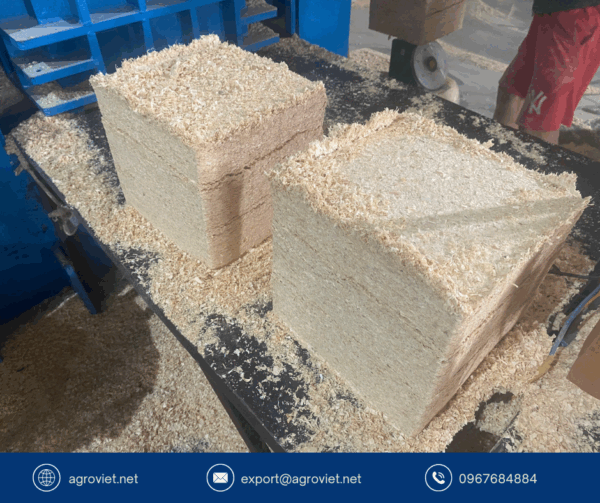Why Wet and Moldy Bedding Increases the Risk of Coccidiosis in Broiler Chickens: The Critical Role of Wood Shavings

Introduction to Coccidiosis in Broiler Chickens
Coccidiosis is a major parasitic disease affecting broiler chickens, caused by Eimeria species, leading to significant economic losses in poultry farming. This intestinal infection thrives in wet, moldy bedding, compromising bird health, growth rates, and farm profitability. Clean wood shavings, with their superior moisture absorption and hygienic properties, are essential for preventing coccidiosis by maintaining a dry, clean litter environment. Drawing on research from Frontiers in Veterinary Science, this post explores how wet bedding fuels coccidiosis and why wood shavings are a vital solution.
Understanding Coccidiosis in Broilers
Coccidiosis is caused by protozoan parasites of the Eimeria genus, which infect the intestinal tract of broiler chickens. Symptoms include reduced weight gain, diarrhea, and increased mortality, with economic losses estimated at $0.05-$0.10 per bird in severe outbreaks. The parasite’s oocysts, shed in feces, thrive in moist, warm environments, making wet litter a primary risk factor. According to the Frontiers study, poor litter management significantly increases Eimeria transmission, leading to infection rates as high as 80% in poorly maintained broiler houses.
Watch this: https://www.youtube.com/watch?v=ZBDNzPx-WQU
The Role of Wet and Moldy Bedding
Wet and moldy bedding creates ideal conditions for Eimeria oocysts to sporulate and infect chickens. Excess moisture from spilled water, poor ventilation, or manure buildup keeps litter damp, promoting oocyst survival and proliferation. Moldy bedding, often caused by fungal growth in wet conditions, further weakens birds’ immune systems, making them more susceptible to coccidiosis. The study highlights that litter moisture levels above 30% significantly increase oocyst viability, directly contributing to higher infection rates.
How Dirty Bedding Amplifies Coccidiosis Risk
Dirty bedding, contaminated with feces and organic matter, serves as a reservoir for Eimeria oocysts. Unlike clean, dry litter, soiled bedding retains moisture and heat, accelerating oocyst sporulation—a process critical for the parasite to become infectious. Prolonged exposure to contaminated litter increases the likelihood of birds ingesting oocysts through pecking or dust inhalation. Without proper litter management, broiler houses become hotspots for coccidiosis outbreaks, leading to reduced feed efficiency and higher mortality.
Why Wood Shavings Are Essential for Prevention
Wood shavings are a highly effective bedding material for controlling coccidiosis in broiler chickens. Their excellent moisture absorption—retaining up to 200% of their weight—keeps litter dry, inhibiting oocyst sporulation. Wood shavings also promote aeration, preventing the anaerobic conditions that foster mold and pathogen growth. Unlike straw or other materials, wood shavings resist compaction, maintaining a clean, hygienic environment that reduces the risk of Eimeria transmission and supports overall flock health.
Scientific Evidence Supporting Wood Shavings
Research from the Frontiers in Veterinary Science article emphasizes the link between litter quality and coccidiosis control. The study found that dry litter, such as wood shavings, reduced oocyst counts by up to 40% compared to wet straw-based bedding. Wood shavings’ ability to maintain litter moisture below 20% disrupts the sporulation process, significantly lowering infection rates. Additionally, their coarse texture minimizes dust, reducing oocyst inhalation and ensuring a cleaner environment for broilers.
Key Benefits of Wood Shavings for Broiler Bedding
-
Moisture Control: Absorbs water and manure, keeping litter dry and reducing oocyst sporulation.
-
Pathogen Suppression: Limits conditions for Eimeria and mold growth, decreasing infection risks.
-
Improved Air Quality: Reduces ammonia and dust, supporting respiratory and immune health.
-
Cost-Effective: Affordable and durable, requiring less frequent replacement than other materials.
-
Sustainable: Compostable after use, offering an environmentally friendly disposal option.
Consequences of Neglecting Proper Bedding
Failing to use absorbent, clean bedding like wood shavings heightens the risk of coccidiosis outbreaks. Wet, moldy litter not only promotes Eimeria transmission but also increases ammonia levels, which stress birds and weaken their immunity. This can lead to secondary infections, reduced growth rates, and mortality rates of 5-20% in severe cases. The economic impact includes lower meat yields and higher costs for anticoccidial drugs, which can range from $0.02-$0.04 per bird. Poor litter management undermines flock performance and farm profitability.
Practical Tips for Using Wood Shavings
To maximize the benefits of wood shavings, poultry farmers should:
-
Use untreated softwood shavings, such as pine, to avoid chemical contamination.
-
Maintain a litter depth of 4-6 inches to ensure adequate moisture absorption and comfort.
-
Regularly turn or replace litter to prevent moisture buildup and compaction.
-
Monitor waterers to prevent spills that contribute to wet litter conditions.
-
Ensure proper ventilation to enhance the drying effect of wood shavings.
Complementary Strategies for Coccidiosis Control
While wood shavings are critical, a comprehensive approach strengthens coccidiosis prevention:
-
Vaccination: Administer Eimeria vaccines to build immunity in young chicks.
-
Anticoccidials: Use medicated feed additives as a preventive measure, following veterinary guidance.
-
Biosecurity: Limit access to broiler houses to prevent oocyst introduction from external sources.
-
Sanitation: Clean and disinfect houses between flocks to reduce residual oocysts.
-
Nutrition: Provide balanced diets to support immune function and resilience against infections.
Economic and Welfare Impacts
Preventing coccidiosis with wood shavings improves broiler welfare and farm economics. Healthy birds exhibit better feed conversion ratios and weight gain, increasing meat yields and profitability. Coccidiosis outbreaks, conversely, can reduce flock value by 10-15%, with additional costs for treatment and labor. Wood shavings, while an upfront investment, reduce long-term expenses by minimizing disease incidence. Their eco-friendly nature also supports sustainable farming, aligning with consumer demand for responsible poultry production.
Addressing Challenges with Wood Shavings
Wood shavings require proper management to maintain their effectiveness. Dust from low-quality shavings can irritate birds’ respiratory systems, potentially exacerbating health issues. Farmers should source high-quality, dust-free shavings and maintain adequate ventilation to minimize dust accumulation. Compaction can occur in high-traffic areas, so regular litter turning is essential. By addressing these challenges, wood shavings remain a practical and effective bedding choice for coccidiosis prevention.
Conclusion
Wet and moldy bedding significantly increases the risk of coccidiosis in broiler chickens by creating a favorable environment for Eimeria oocysts. Clean wood shavings, with their superior moisture control and hygienic properties, are a science-backed solution to reduce this risk. Supported by research from Frontiers in Veterinary Science, wood shavings help maintain dry, clean litter, disrupting the parasite’s life cycle and protecting flock health. By prioritizing wood shavings and adopting complementary strategies, poultry farmers can prevent coccidiosis, enhance bird welfare, and ensure sustainable, profitable operations.
Read more: https://vietnambestwood.com/general/mixed-wood-shavings-livestock-bedding/
